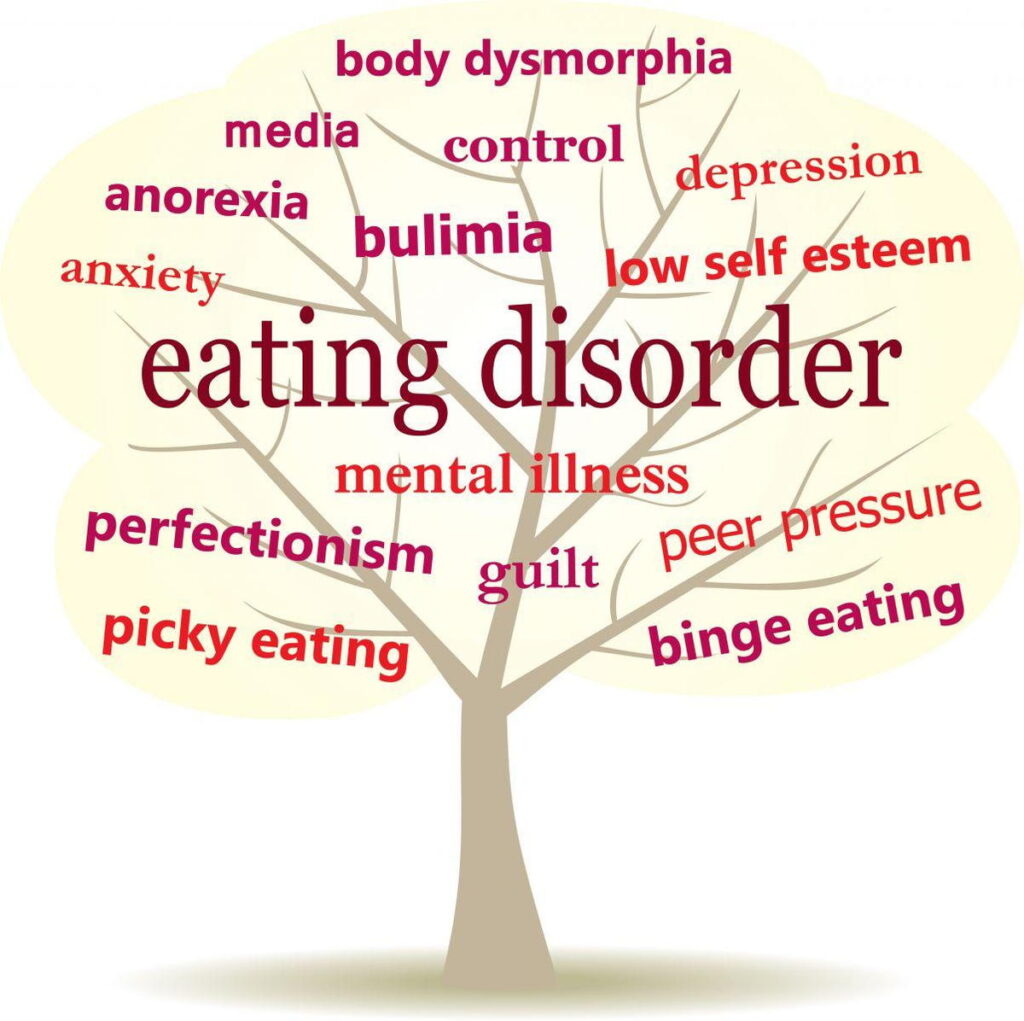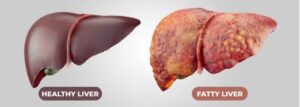Eating Disorders - Symptoms, Causes, Prevention & Homeopathic treatment

Overview
Eating disorders are serious mental health conditions characterized by abnormal eating habits that negatively impact health, emotions, and daily functioning. These disorders include anorexia nervosa, bulimia nervosa, binge eating disorder, and other specified feeding or eating disorders (OSFED). They can have severe physical and psychological consequences if not addressed effectively. Understanding eating disorders, their symptoms, causes, and treatment options—including homeopathic approaches—can aid in effective management and recovery.
Symptoms
Eating disorders present with a variety of symptoms, which can differ based on the specific type:
Anorexia Nervosa:
- Severe Restriction of Food Intake: Extreme restriction of calories and food intake.
- Intense Fear of Gaining Weight: Persistent anxiety about gaining weight.
- Distorted Body Image: A distorted perception of body weight or shape.
- Significant Weight Loss: Noticeable and extreme weight loss.
- Preoccupation with Food: Obsessive thoughts about food, dieting, and body image.
Bulimia Nervosa:
- Binge Eating: Consuming large quantities of food in a short period, often accompanied by a feeling of loss of control.
- Purging Behaviors: Engaging in behaviors to prevent weight gain, such as vomiting, excessive exercise, or using laxatives.
- Fear of Weight Gain: Intense worry about gaining weight despite normal weight or frequent fluctuations.
- Secretive Eating: Eating in secrecy and feeling ashamed or guilty about eating behaviors.
Binge Eating Disorder:
- Recurrent Episodes of Binge Eating: Eating large amounts of food without purging.
- Lack of Control: Feeling unable to control the eating during binge episodes.
- Emotional Distress: Experiencing significant distress or guilt after binge eating.
- Eating Rapidly: Eating much faster than usual during binge episodes.
Other Specified Feeding or Eating Disorders (OSFED):
- Symptoms Vary: Includes disordered eating behaviors that do not fit into the categories of anorexia, bulimia, or binge eating disorder but still cause significant distress.
When to See a Doctor
Consult a healthcare provider if you or someone you know experiences:
- Severe Symptoms: Extreme restriction of food intake, binge eating, or purging behaviors.
- Physical Health Issues: Noticeable weight loss or gain, dehydration, electrolyte imbalances, or other health problems related to eating habits.
- Psychological Distress: Persistent anxiety, depression, or obsessive thoughts about food and body image.
- Functional Impairment: Difficulty performing daily activities or maintaining relationships due to eating behaviors.
- Uncontrolled Behaviors: Engaging in dangerous or harmful eating behaviors, including self-harm or severe purging.
Causes
The causes of eating disorders are multifaceted and can include:
- Genetic Factors: Family history of eating disorders or other mental health conditions.
- Biological Factors: Imbalances in brain chemistry or hormonal changes that affect appetite and body image.
- Psychological Factors: Low self-esteem, perfectionism, or trauma can contribute to disordered eating.
- Sociocultural Factors: Societal pressures and media influence related to body image and weight can play a role.
- Environmental Factors: Stressful life events, such as abuse, bullying, or major life changes, can trigger eating disorders.
Risk Factors
Several risk factors can increase the likelihood of developing an eating disorder:
- Gender: Eating disorders are more common in women, although men can also be affected.
- Age: Often begins during adolescence or early adulthood.
- Family History: Genetic predisposition or family history of eating disorders or mental health conditions.
- Personality Traits: Traits such as perfectionism, high achievement orientation, or anxiety.
- Cultural Influences: Exposure to cultural norms and ideals related to thinness and beauty.
Complications
Eating disorders can lead to serious complications if left untreated:
- Physical Health Issues: Nutritional deficiencies, heart problems, gastrointestinal issues, and bone loss.
- Mental Health Disorders: Increased risk of depression, anxiety, and substance abuse.
- Reproductive Health Problems: Irregular menstrual cycles or amenorrhea in women, and potential fertility issues.
- Impaired Functioning: Difficulty in maintaining normal daily activities and relationships.
- Increased Mortality Risk: Severe cases of eating disorders can be life-threatening due to health complications or self-harm.
Preventions
Preventing eating disorders involves addressing risk factors and promoting healthy attitudes towards food and body image:
- Promote Healthy Eating Habits: Encourage balanced, nutritious eating and discourage restrictive dieting or unhealthy eating patterns.
- Foster Positive Body Image: Support healthy body image and self-esteem, and challenge societal beauty standards.
- Encourage Open Communication: Create supportive environments where individuals feel comfortable discussing their feelings and concerns.
- Educate on Healthy Lifestyle: Provide education on the importance of physical and emotional well-being.
- Seek Early Intervention: Address disordered eating behaviors and psychological issues promptly to prevent escalation.
Can Homeopathy Help?
Homeopathy offers a holistic approach to managing eating disorders by addressing individual symptoms and underlying causes. Common remedies include:
- Ignatia Amara: For emotional distress, grief, and anxiety related to disordered eating.
- Calcarea Carbonica: To address feelings of inadequacy and emotional imbalances affecting eating habits.
- Natrum Muriaticum: For individuals with a history of trauma or emotional difficulties contributing to disordered eating.
A homeopathic practitioner can provide personalized remedies and support tailored to the individual’s specific needs and symptoms.
Diagnosis
Diagnosing eating disorders typically involves:
- Medical History: Detailed review of eating behaviors, physical health, and psychological symptoms.
- Physical Examination: Assessment of physical health, including weight, vital signs, and potential health complications.
- Psychological Evaluation: Evaluation of emotional and mental health through interviews and standardized assessments.
- Laboratory Tests: Blood tests to check for nutritional deficiencies, electrolyte imbalances, or other health issues related to eating disorders.
Treatments
Treatment for eating disorders often includes a combination of approaches:
- Psychotherapy: Individual therapy, cognitive-behavioral therapy (CBT), and family therapy to address underlying psychological issues and eating behaviors.
- Nutritional Counseling: Guidance on healthy eating habits and addressing nutritional deficiencies.
- Medications: Use of antidepressants or other medications to manage co-occurring mental health conditions.
- Medical Monitoring: Regular monitoring of physical health and managing any medical complications.
- Support Groups: Participation in support groups for individuals with eating disorders and their families.
Lifestyle and Home Remedies
Supporting recovery from eating disorders through lifestyle changes and home remedies can be beneficial:
- Balanced Diet: Focus on a well-rounded, nutritious diet to support overall health and recovery.
- Regular Physical Activity: Engage in moderate exercise to improve physical and mental well-being.
- Stress Management: Use techniques such as mindfulness, meditation, or relaxation exercises to manage stress and emotional health.
- Support System: Build a supportive network of friends, family, or support groups to provide encouragement and accountability.
Preparing for Your Appointment
To make the most of your appointment with a healthcare provider or homeopathic practitioner, consider:
- Document Symptoms: Keep a detailed record of eating behaviors, physical symptoms, and emotional distress.
- List Medications and Supplements: Provide information about any current medications, supplements, or over-the-counter products you are using.
- Prepare Questions: Write down any questions or concerns you have about your diagnosis, treatment options, and overall management.
- Health History: Share a comprehensive overview of your health history, including family history of eating disorders or mental health conditions.

